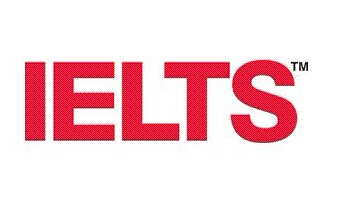托福阅读材料之Shanghai’s 2010 Expo: the ’Economic Olympics’
2014-03-20 16:34 供稿单位: 新航道
出国英语考试有哪些 雅思6.5是什么水平 雅思阅读评分标准 托福阅读评分标准 雅思和托福的区别
Hosting a world expo was once a big deal. From London in 1851 to Chicago in 1893, these fairs put cities at the center of the world stage, just as Olympics and world cups do today. But today, within the West, the expo is the Rodney Dangerfield of major events.
One reason they "don't get no respect" is that host cities – not to knock Knoxville, Tenn. – haven't always been top-tier ones in recent decades. So it's not surprising that the 2010 expo hasn't gotten much attention in the West. That's too bad, because this one, in Shanghai, is unusually ambitious.
Obviously, it won't match the Beijing Games as a symbol of China's rising importance. But just as the Olympic opening ceremonies gave the world a glitzy tour of China's past, the expo will offer an important glimpse into its future.
1. Shanghai: perfectly cast
Since the days of London's Crystal Palace exhibition in 1851, world's fairs have provided visitors with two things. First, a global perspective via displays of goods from around the world. Second, a taste of the future via displays of new inventions and state-of-the-art machines and structures (Gustave Eiffel built his famous tower for a Paris exposition). As a former and now restored global metropolis, Shanghai has a distinctly cosmopolitan setting replete with futuristic objects, such as its first-in-the-world, ultra-high-speed magnetic levitation train.
2. The expo's urban impact
The city has expanded enormously in recent years. Much of the action is centered in formerly undeveloped Pudong (East Shanghai), which is now home to some of the world's tallest buildings. The national pavilions that will be the heart of the expo will be located on the same side of river as those skyscrapers, but there have been important expo-related developments across the water in Puxi (West Shanghai), also. Puxi is famous for "The Bund," its riverfront lined with elegant neoclassical structures. The expo may finally link the often separate worlds of Puxi and Pudong. Indeed, its theme is "Better City, Better Life." It even features an "urban best practices area."
3. US pavilion uncertainty
National pavilions are like student exhibits at a science fair. At the expo, they say a lot about a country's economic prowess. China's towering pavilion certainly makes a statement. More than 200 countries and groups have one – but the US may be a no-show. The State Department won't fund a pavilion; it hasn't for any recent expo. A private group is cleared to host one, but it will be hard to raise funds in this recession. America's absence would be too bad – especially given how much our first fairs meant to some US cities.
4. Ties to the Beijing Olympics
The cutesy "Fuwa" Olympic mascots have their companion in "Haibao," the expo's Gumby-like symbol. Haibao's lead designer explained that the character's blueness "symbolizes many things: the earth, dreams, the oceans, life, future, and technology." Shanghai 2010 is being touted as an "Economic Olympics." And there's an expo educational drive going on that mirrors, on a more local scale, the Olympic one of a few years back. So schoolchildren in Shanghai are learning that one sign of America's rise to global power in the late 1800s was that it became the first non-European country to host world's fairs, and one sign of China's lowly status was that it was viewed as too backward to hold such events.
5. The Olympic-expo combo
China's use of back-to-back mega-events calls to mind what regional rival Japan did successfully a few decades ago amid its economic ascent. Japan's first Olympics (Tokyo in 1964) and its first world's fair (Osaka in 1970) imprinted a new image of the nation as a thoroughly modern country, light years removed from the exotic land whose pavilions at old fairs were, like China's, showcases for quaint objects, not state-of-the-art technologies. This is just the sort of two-part rebranding move that China's leaders began in Beijing last August and hope to carry forward in Shanghai a year from now.
以上就是新航道托福频道为大家整理的托福阅读材料之Shanghai’s 2010 Expo: the ’Economic Olympics’,希望对大家有帮助,更多资讯、资料请访问新航道托福阅读频道 https://www.xhd.cn/toefl/yuedu/
分享到:

- 新航道,英语成功之道。时间获取新航道英语学习资料和新鲜资讯,请在微信公众账号中搜索「新航道英语」或者「xhdenglish」,或用手机扫描左方二维码,即可获得新航道每日精华内容推送和英语学习经验分享,并参与新航道举办的各项活动。
责编:李术
精彩专题
更多视频荟萃
更多
-
120托福节之李老师:你的托福阅读领路人!
时长:01-18

-
120托福节之冉维:你的托福写作领路人!
时长:01-18
托福预测
更多
-
2017年托福听力考情分析及2018年备考建议
2017 年全年的48 场新托福考试已经落下帷...
- 2017年托福口语考情分析及2018年备考建议
- 2017年托福阅读考情分析及2018年备考建议
- 2017年托福写作考情分析及2018年备考建议(下)
- 2017年托福写作考情分析及2018年备考建议(上)









